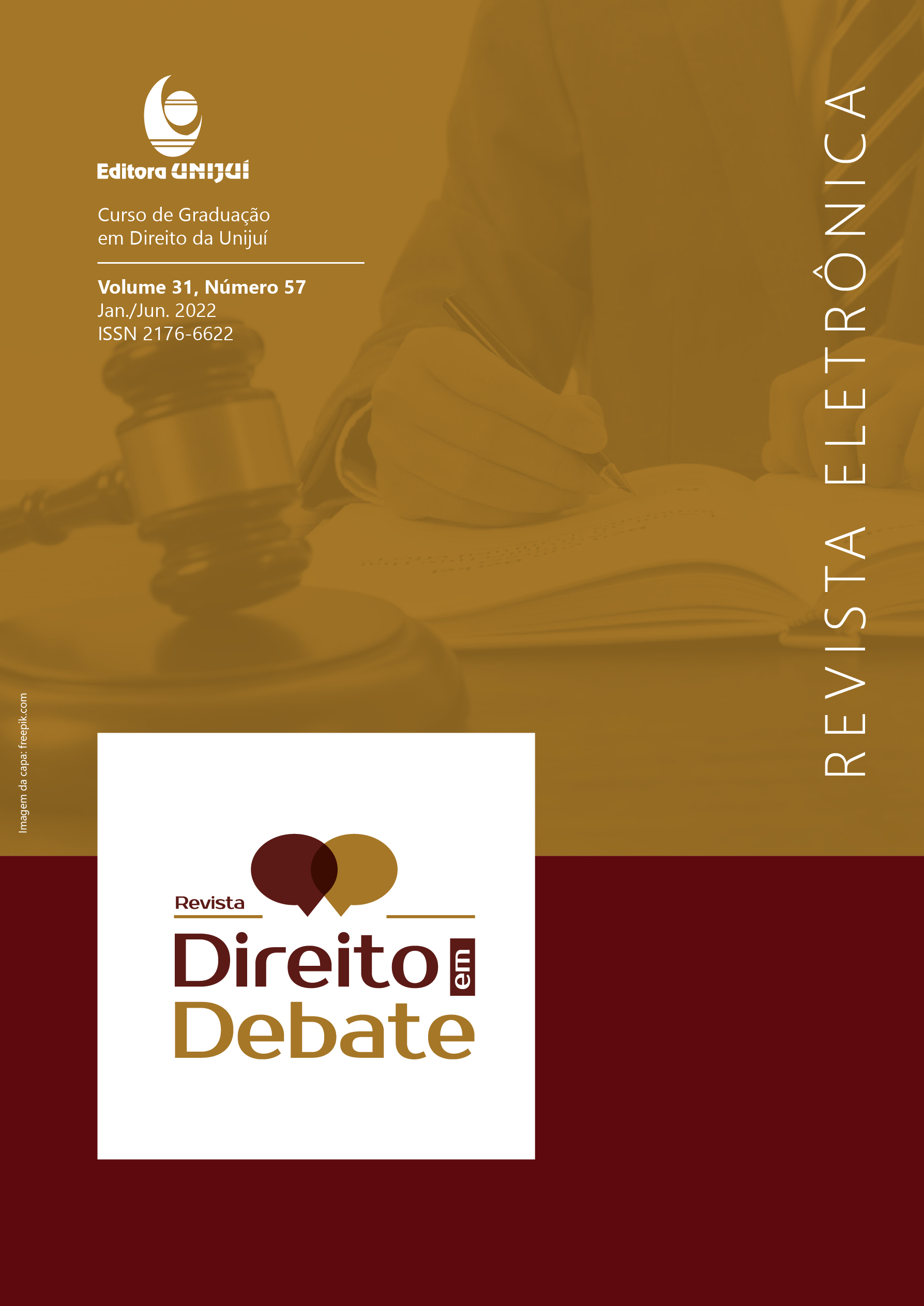The proactivity and resolutivity of the public ministry as a support for social legitimation and protection of human rights
DOI:
https://doi.org/10.21527/2176-6622.2022.57.10649Keywords:
Human Rights. Public Ministry. Proactivity. Resolutivity. Social Legitimation.Abstract
In this critical essay, we emphasize that, with the promulgation of the CF/1988, the Public Ministry in Brazil, until then in the main exercise of prosecution in the criminal area with a timid incursion into the civil sphere, sees itself erected to the category of social promotion agent, in a Democratic Rule of Law whose fundamental objectives were the construction of a free, fair and solidary society, needing to eradicate poverty, marginalization and the reduction of social and regional inequalities, among other challenging issues. For decades it postulated, through the filing of actions before the Judiciary, individual and collective rights concerning the basic and fundamental needs of life in society, however, the legal protection pursued by this means, especially that of a collective nature, not infrequently occurred unsatisfactory, given the inadequate structures of the judging body. Alongside this, access to justice for the resolution of conflicts emerged as a fundamental right of citizens. Adoption became urgent for the Public Prosecutor’s Office – as a way of meeting the new values of a society eager for the implementation of the democratic spirit, thus performing the relevant attributions of a social transformation body, continuing to be useful and legitimated by this society – the adoption from another profile (not abandoning everything from the classic/demandist profile) rooted in initiative (proactivity) and in the resolution of conflicts, controversies and social problems (resolvability), without the need to file claims, but which would pacify and restore social interaction , with respect to human rights, representing a means of expanded access to justice. In this regard, through guidance and training of members and employees of the Public Ministry, the National Council of the Public Ministry (CNMP), with a view to encouraging extrajudicial resolution, presented self-composition methods, such as negotiation, mediation, conciliation, which can be instrumentalized. by the public civil inquiry, terms of adjustment of conduct.
Downloads
Published
How to Cite
Issue
Section
License
Autores que publicam nesta revista concordam com os seguintes termos:
a. A submissão de trabalho(s) científico(s) original(is) pelos autores, na qualidade de titulares do direito de autor do(s) texto(s) enviado(s) ao periódico, nos termos da Lei 9.610/98, implica na cessão de direitos autorais de publicação na Revista Direito em Debate do(s) artigo(s) aceitos para publicação à Universidade Regional do Noroeste do Estado do Rio Grande do Sul, autorizando-se, ainda, que o(s) trabalho(s) científico(s) aprovado(s) seja(m) divulgado(s) gratuitamente, sem qualquer tipo de ressarcimento a título de direitos autorais, por meio do site da revista e suas bases de dados de indexação e repositórios, para fins de leitura, impressão e/ou download do arquivo do texto, a partir da data de aceitação para fins de publicação. Isto significa que, ao procederem a submissão do(s) artigo(s) à Revista Direito em Debate e, por conseguinte, a cessão gratuita dos direitos autorais relacionados ao trabalho científico enviado, os autores têm plena ciência de que não serão remunerados pela publicação do(s) artigo(s) no periódico.
b. Autores mantém os direitos autorais e concedem à revista o direito de primeira publicação, com o trabalho simultaneamente licenciado sob a Licença Creative Commons Attribution que permite o compartilhamento do trabalho com reconhecimento da autoria e publicação inicial nesta revista.
c. Autores têm autorização para assumir contratos adicionais separadamente, para distribuição não-exclusiva da versão do trabalho publicada nesta revista (ex.: publicar em repositório institucional ou como capítulo de livro), com reconhecimento de autoria e publicação inicial nesta revista.
d. Autores têm permissão e são estimulados a publicar e distribuir seu trabalho online (ex.: em repositórios institucionais ou na sua página pessoal) a qualquer ponto antes ou durante o processo editorial, já que isso pode gerar alterações produtivas, bem como aumentar o impacto e a citação do trabalho publicado (Veja O Efeito do Acesso Livre).
e. O(s) A(s) autores(as) declaram que o texto que está sendo submetido à Revista Direito em Debate respeita as normas de ética em pesquisa e que assumem toda e qualquer responsabilidade quanto ao previsto na resolução Nº 510/2016, do Conselho Nacional de Ética em Pesquisa.
f. Os autores declaram expressamente concordar com os termos da presente Declaração de Direito Autoral, que se aplicará a submissão caso seja publicada por esta Revista.
g. A Revista Direitos em Debate é uma publicação de acesso aberto, o que significa que todo o conteúdo está disponível gratuitamente, sem custo para o usuário ou sua instituição. Os usuários têm permissão para ler, copiar, distribuir, imprimir, pesquisar, criar links para os textos completos dos artigos, ou utilizá-los para qualquer outro propósito legal, sem pedir permissão prévia do editor ou o autor. Estes princípios estão de acordo com a definição BOAI de acesso aberto.










